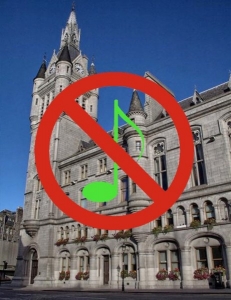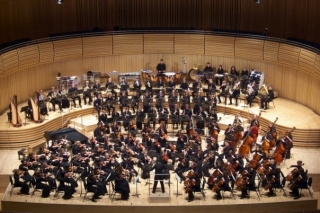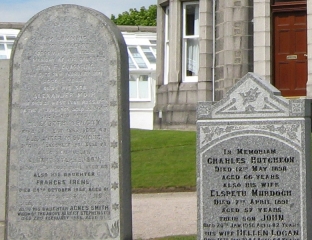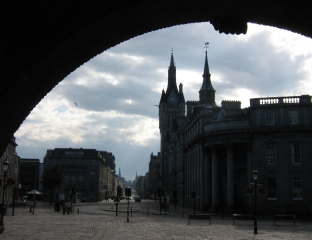By Margaret Preston.
Many Aberdeen musicians and their colleagues from all over UK are dismayed at the proposed cuts in the instrumental practice in Aberdeen.
While those at home are aware of the many vital services that have been slashed in order to cut the Council Deficit, those outwith Aberdeen are frequently unaware of the context and are wondering how the ‘Oil Capital of Europe’ cannot ensure an enriching and nurturing educational environment for all its children.
The supply of subsidised music tuition is not a statutory requirement in schools and therefore is probably considered a soft target by our cash strapped council.
In defence of the council, they have traditionally provided an instrumental service in schools that was the envy of many, lauded at home and abroad as setting a benchmark for other councils to aspire to.
Over many years the Aberdeen/shire music peripatetic staff have :
- provided value for money – most of their time is spent “one on one” or in small groups providing quality time with demonstrable results that are not often seen in many of the other “one on one” situations in schools.
- provided top quality musicians – The performing arts in Aberdeen have been well served by the “products” of our instrumental service. Our local theatre/musical societies are top notch and have, over the years, managed to perform at a professional standard. Moreover, Aberdeen’s various orchestras and bands have provided music for many civic and corporate occasions. Can we imagine our Remembrance Sunday without the Bon Accord Band or indeed the recent hit show The Producers (and many others like this) without its pit orchestra?
- Star performers from Aberdeen/shire have graced stages all over the world. Annie Lennox, Evelyn Glennie, Lisa Milne (and too many top orchestral players to mention) were products of school instrumental service. Aside from these celebrities there are those who have, because of the discipline, dexterity, intellectual development, spirit, etc required in mastering an instrument, have further honed their abilities and consequently gone on to take top jobs in medicine, engineering, and many other fields.
Of course there are further benefits from this kind of specialised service. For many children in deprived areas this has been the only nurturing “one on one” experience that they were assured of on a weekly basis.
Star performers from Aberdeen/shire have graced stages all over the world
A pupil should not be judged soley by their musical progress, but also by the wider benefits that are evident in their general development and interaction with their peers.
There has been considerable investment in music over the years in Aberdeen, and it shows! Aberdeen is recognised nationally for the excellence of it’s contribution to the music world. If this was removed we could see more than a lack of a musical milieu in Aberdeen.
Music reflects and promotes the health of individuals and society as a whole. Cutting now, with a possible reintroduction at a later date when resources allowed, might work on paper, but in reality, the resulting degradation of that society would make the reintroduction almost impossible as the health of the society would have been irrevocably undermined.
These are difficult times caused by a variety of circumstances countrywide, and within the council. The concern that councillors may act for the “the moment” and not be around or answerable to appreciate the consequences of some of the cuts are understandable. The sacrifice of some of our creative nurturing traditions could leave our society fighting the “rearguard” action that we often see in deprived/urban areas, where increasing amounts of money are being spent to battle drugs, alcohol, obesity and general laxity.
Children should have a chance for a productive and happy future. This is to some extent determined by the quality and breadth of their all round education. Instead of enacting cuts that could have us mopping up the ‘fallout’ for many years to come, our councillors should reconsider their recent proposals to cut a service which has for many years been a beacon in the world of musical education.








